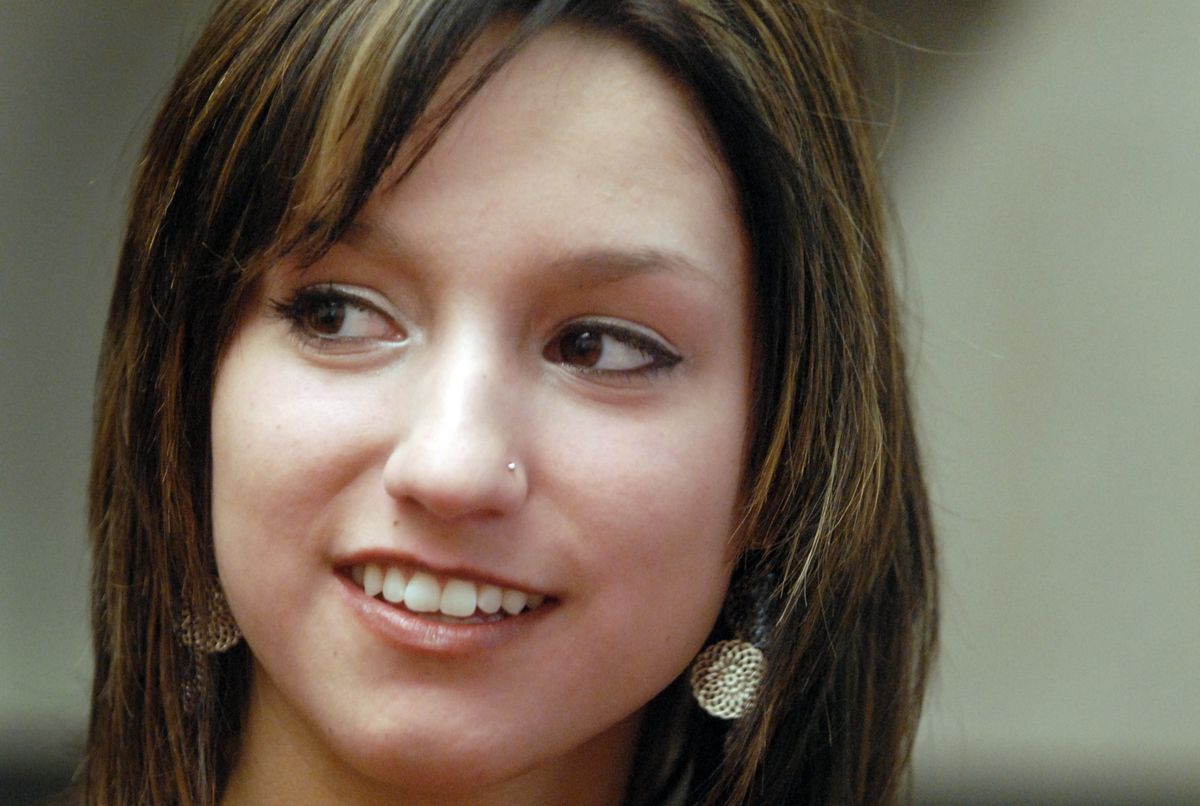Drive for normalcy
WV junior doesn’t let diagnosis dim her desire to live a complete life

Alejandra Rose Calzadillas roams the halls of West Valley High School fairly anonymously. She looks like any other teenage girl and only her close friends and school staff know she’s struggling with a disease that will likely kill her someday.
“Most of them don’t know because I look normal,” said Calzadillas, who goes by Lexi. “People don’t look at me and see that I’m disabled.”
The diagnosis in the fall of her freshman year was of Juvenile Systemic Sclerosis, an autoimmune disease that causes her immune system to attack her own body. “It actually hardens the internal connective tissues,” said her mother, Stacey Carr. “That can include the digestive tract, the heart, the lungs. Left untreated it’s really nasty.”
Carr had known that something was wrong for years. Her daughter had stomach problems, though limiting her intake of wheat and dairy seemed to help for a while. She had constant heartburn and sores on her fingers that wouldn’t heal. “Her hands were always turning purple, blue and white,” she said. “This was years of this.”
On repeated visits Calzadillas’ pediatrician said there was nothing wrong with her, that she was only being a hypochondriac. “As a mom, you just know when something is desperately wrong,” Carr said.
In 2006 Carr took her daughter to an urgent care facility with an ulcerated finger that was mushy to the touch and turning green. The doctor they saw hit the roof. “He told me my finger was self-amputating,” Calzadillas said. “That got the attention of the rheumatologist.”
Carr tracked down the only rheumatologist in Eastern Washington who treats children, Dr. Meredith Heick. When she called for an appointment, she was told the first available slot was in four months. Carr sobbed into the phone. “I told her I didn’t think she’d live until then,” Carr said. Calzadillas was worked into the schedule that very day.
For a time Calzadillas had an injection of drugs every week. The chemical cocktail gave her migraines and extreme stomach pain. The shot itself was painful, too. “She’d cry as every drop entered her,” Carr said.
Now Calzadillas takes more than a dozen pills to manage her symptoms, a long and difficult process because 50 percent of her esophagus doesn’t function. It’s effectively paralyzed and doesn’t contract to help the swallowing process. “You have to swallow a couple of times,” Calzadillas said. “Last night I took 15 pills.”
Her new pediatrician, Dr. Sara d’Hulst, recently nominated her for a wish from the Wishing Star Foundation. Instead of asking for a vacation, she asked for a tattoo by Chris Garver of the “Miami Ink” television show. It was an unusual request, but the foundation was able to line everything up for a spring break trip to Florida in April.
She had previously gotten a tattoo of a rose on her abdomen. “I’ve always liked tattoos,” she said. “I think they’re beautiful. I wanted tattoos before I died.”
Carr approved the first tattoo when Calzadillas agreed to a painful feeding tube after her weight dropped too low, despite what she calls her “prudish” attitude. The entire medical experience has made her realize what’s really important, she said. “If you told me five years ago I would let my daughter get a tattoo …”
Calzadillas asked for a tattoo of Ganesh, the Hindu deity of success and destroyer of evils and obstacles. She initially liked the figure because it looked pretty, but soon realized the significance of it.
She e-mailed some pictures of Ganesh to Garver in advance. The tattoo took five hours, and stretches from her rib cage to her left hip. “It’s a good 10 inches long,” she said. “He just freehand drew this on a piece of paper. That amazes me.”
While her diagnosis has led to some relief of her symptoms, it has meant the death of several dreams. She couldn’t try out for the cheerleading squad like she wanted to. This winter she trained on a treadmill, hoping to run a half marathon in June. But one day she went for a jog outside and her body shut down. She routinely loses circulation in her hands and feet when she’s cold or stressed and her doctors think the cold air may have essentially made her lungs seize up, Calzadillas said.
All of the pain and disappointments led Calzadillas into what she calls “wild and crazy” behavior for a while. “I’ve never really been depressed,” she said. “I think it was more of a fatalist thing.”
Then she met a Buddhist monk whose spirituality soothed her. “He had a wholeness about him,” she said. “He made me realize how much religion meant to me.”
She cleaned up her behavior and began attending the Spokane Buddhist Temple. “I realized I was just hurting myself and other people,” she said.
Now a junior, she focuses on the future. She knows she can’t be a police officer like her mother or an Army major like her father, who lives in Georgia. “No one is going to let me in the action,” she said. “I would love to learn Arabic and be involved in the military or some government position.”
There is one goal she must meet, however. “I need full-coverage health insurance,” she said. “I don’t know how else I would live, literally, if I don’t have health insurance.”
Calzadillas knows she won’t live as long as her peers, but is determined to live her life as normally as possible even as she juggles twice weekly doctor visits and regular medical tests. “I have no doubt it’ll be shorter,” she said. “I’m hoping that it’s not too short.”